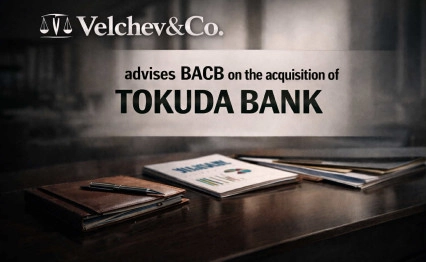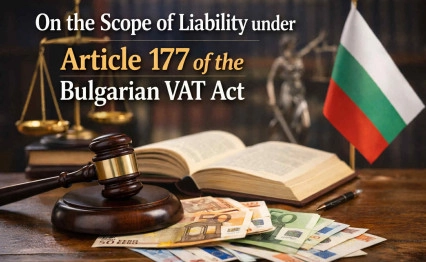
WHAT IS A DAWN RAID AND A MOCK DAWN RAID
The unannounced inspections of companies by the competition authorities, such as the European Commission or the Bulgarian local competition authority, i.e. the Commission for protection of competition are referred to as “dawn raids”. This term derives from the inspectors’ practice to show up unexpected at companies’ offices, often early in the morning, when staff is unprepared for an inspection.
During such inspection the competition authorities are entitled to enter in any office, search it, interrogate the management and personnel and seize any information relevant to the scope of their inquiry, both on paper or in electronic form on the personal computers, servers, cell phones or other electronic devices found at the premises.
This dawn raid practice enables the Competition authorities to investigate the companies for anticompetitive practices, it is regularly used and has already resulted in millions of euro fines for the business, sometimes for simple procedural breaches during the dawn raid instead of actual violation of competition protection laws. Thus, it is of great importance for the companies to be prepared and act appropriately during such this type of inspections.
There are a number of best practices companies can adopt in order to prepare for dawn raids, such as to implement a dawn raid policy, distribute functions within staff concerned and organize trainings of its key personnel, etc.
The trainings have proven to be one of the most efficient ways for the companies to mitigate the risks related to the sudden inspections, those training are often held in the form of a “mock dawn raid”. This is an exercise which will familiarize the personnel with the style of investigation, the rights of authorities and the investigated personnel, the procedural rules. It will allow the personnel to handle an actual dawn raid with less and more confidence.
Raids are understandably stressful for employees. In our experience, this stress can be mitigated by periodically conducting mock raids to simulate what employees should expect and be ready to handle during a raid.
In this article we will be focusing on the inspections by the European Commission, however the basic principles are also applicable to any other inspections by local regulatory authorities.
WHAT TO EXPECT DURING A DAWN RAID
Normally Inspectors from the European Commission will arrive early in the morning with a written Decision authorizing them to hold the inspection. If the inspection is by the local Commission for protection of competition (CPC), apart from the CPC order, the inspectors should also provide a court warrant.
When inspectors arrive, they will probably request a meeting with commercial team, management or other staff that could be involved in anticompetitive practices.
It is important for the inspected Company to have a procedure guaranteeing that immediately upon arrival of the inspectors, the receptionist/security guard will involve the responsible legal or compliance department, or any external lawyers. This however should be done rapidly and in a way that does not prevent the start of the inspection.
The inspectors have the following powers
- to search the premises and the entire IT network and hardware (servers, computers, cell phones, CDs, USB sticks, etc.) for any anticompetitive practices evidence in paper or electronic form, including files considered confidential for the Company;
- to seize copies of relevant documents and files;
- copy the relevant electronic data on an external hard drive and continue its searche thereof at the European Commission’s site in presence of Company’s representatives.
- request certain Company’s email accounts or phones to be blocked in order to limit the personnel possibility to delete information or prevent any findings. Blocked accounts and phones can be reinstated only upon inspector’s approval.
- to interview staff members and record or take minutes of the interviews;
- to seal the searched premises if the inspection cannot be completed in a day or needs to be interrupted during the day (it is very important that premises remain sealed as the Company can be heavily sanction if seal is found broken).
Certain limitations apply to the inspector’s authority
- during the search, the staff whose premises or documents are being inspected, have the right to be present and monitor what is being searched, copied and seized (however the absence of some employee is not a ground for the inspection to be delayed).
- the inspection scope is defined in the inspection decision or court warrant, copies of which are to be handled to the inspected Company, so that its legal or compliance team can be aware of the allegations investigated, relevant period and business unit concerned, territorial scope of the alleged violation.
- inspectors should consider the Company’s objections provided the investigation goes beyond the authorized scope; Objections should also be included in the Minutes of the inspection provided so is required by the investigated Company.
- if the officials are looking for evidence beyond the scope of the inspection decision, you can raise objections and, in case they insist, request that a mention be made in the minutes. But if the officials find evidence of other infringements beyond the scope of the original inspection decision, the Commission is empowered to issue further inspection decisions.
- the inspectors are not permitted access to information and documents which are subject to legal privilege. The written exchanges with law firms, especially such dealing with competition law are normally considered as covered by such legal privilege, however this limitation is not applicable to the in-house lawyers.
- the staff members interviews should only concern the inspected allegations and should not go beyond the scope of the authorized investigation and questions cannot be self-incriminating for the interviewee. However, it is important to note that if any staff member refuses an interview or provides information that is not true, the Company can be fined.
- The Inspectors draft Inspection Minutes and the Company is entitled to require that its objections made during the search are formalized as well as that all seized documents and other information are indexed thereof; Minutes are reviewed and signed by both Inspectors and Company’s representative.
HOW TO PREPARE FOR A DAWN RAID
The Company can implement a number of measures that will allow for the dawn raid to go smoothly and without incurring risk of fines for breach of procedure:
- Set up its internal dawn raid team consisting of legal, compliance, managerial, IT staff or external lawyers if available. Determine its team leader to be in charge of the interaction with inspectors;
- Distribute roles within the dawn raid team;
- Prepare the list of staff to be involved in the dawn raid and provide it to receptionist/security guard;
- Train its internal dawn raid team and the key personnel that could be involved in a dawn raid, as well as its reception and security staff;
- Organize mock dawn raids as a form of training of its staff;
- Have an appropriate premise available for inspectors to work at;
HOW TO ACT DURING THE INSPECTION
- Inspectors should be politely welcomed and assured for the Company’s staff intent to cooperate;
- Receptionist/security guard should immediately contact the dawn raid team and organize a meeting;
- External competition law advisors should be called immediately;
- Dawn raid team should check the inspectors' authorisation documents and make copies thereof.
- Inspectors should enter with “visitors” badge and never be left unaccompanied in Company’s premises. Each inspector should have a “shadow” from the dawn raid team to follow him/her in the premises. The shadows should answer the practical questions; take notes of all inspector’s actions and record the types of information and documents they search for; what are they interviewing the staff about;
- Keep in strict confidentiality the dawn raid and make sure competitors are not informed.
- Do not inform people outside the company (particularly competitors).
- Make sure that the inspectors do not receive access to documents and information that is covered by legal privilege or are not within the scope of the investigation;
- Request that original copies are not seized and returned;
- Make a copy of any document the inspectors are seizing;
- Do not offer to provide any information or documents that has not been particularly requested by the inspectors;
- During the interviews, be polite and cooperative and do not volunteer to provide information not requested by the inspectors;
- Make sure interviews are recorded or taken Minutes of; Object whenever the questions are self-incriminating or outside the scope of the investigation. Make sure that such objections are recorded.
- If premises are being sealed, make sure Minutes for this action are prepared; Read them carefully; Make sure the seal is not brooked under any circumstances; Take measures that the seal is not broken by accident (if necessary, guarded by security) as substantial fines can be imposed even for an accidentally damaged seal.
- Carefully read the Inspection Minutes and sign only after consulting with the in-house or external legal counsel. Be aware that the Company’s representatives cannot refuse to sign the Minutes. Make sure they include all objections and an index of the seized documents or another carrier of information.
- Hold a debrief meeting with the dawn raid team and external legal counsel and decide on further steps, if needed.


